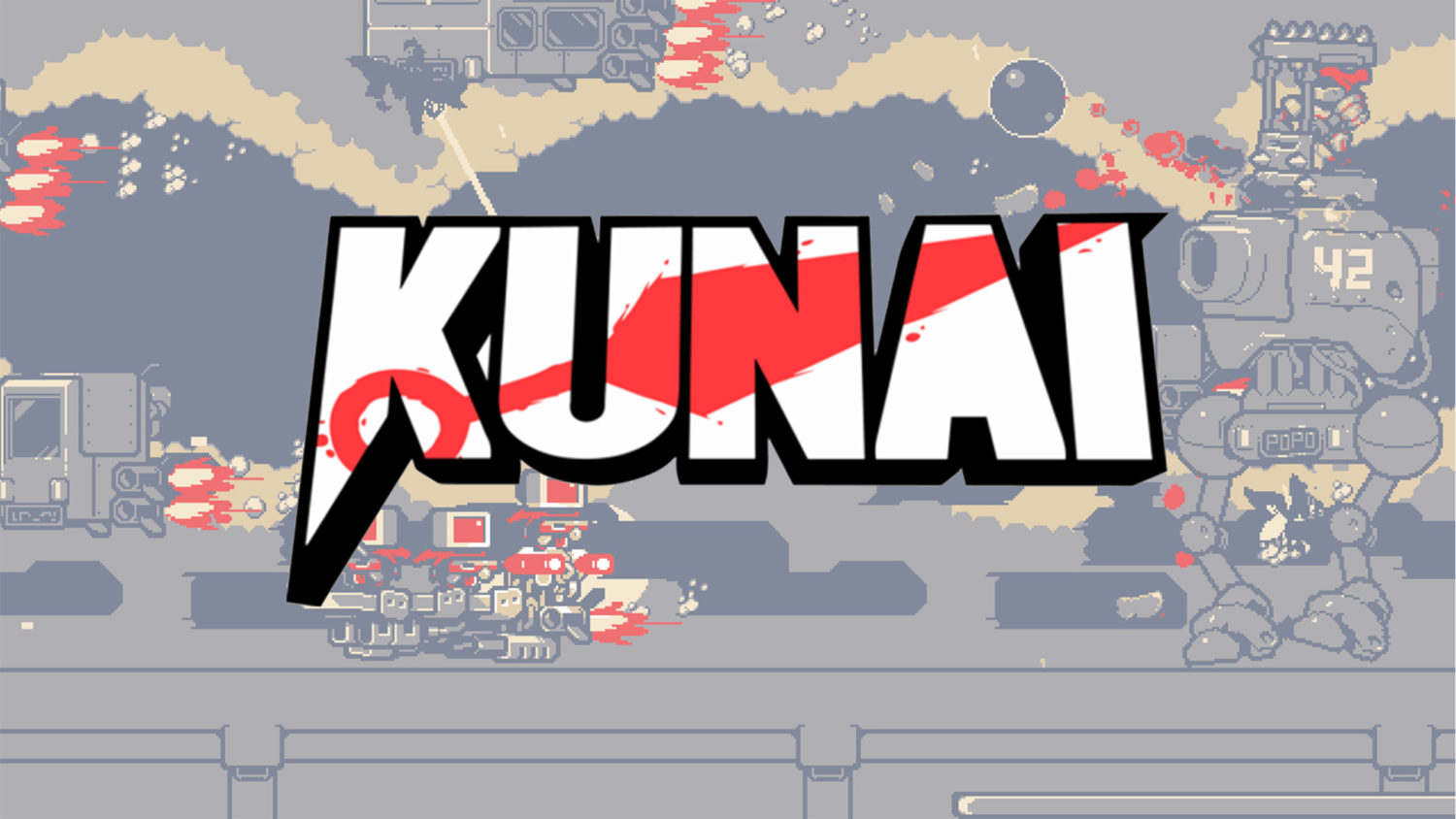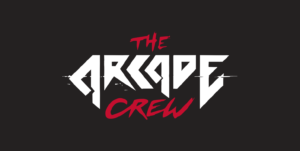Developed By: TurtleBlaze
Published By: The Arcade Crew
Category: Action, Adventure, Platformer, Metroidvania
Release Date: 02.06.2020
The art of getting lost, of studying a map, and navigating deadends is essential to any Medtroidvania. They’ve become a staple on the Switch, already a home to so many platformers and 2D indie experiments. Kunai finds itself at home among some of the best of the genre with a sprawling world, fun platforming, and creative level design. A balanced series of challenges that deftly walk the line between frustrating and fun make up for a lack of color late in the game.
Your adventure begins the moment the protagonist, a ninja tablet named Tabby, breaks free from their chamber of isolation. Immediately you set upon a robot-run world to save it from imminent destruction at the hands of the evil A.I. Lemonkus. Setting off as the chosen one, you meet the Resistance, a band of friendly–and often funny–robot kin who aid you in your quest by either pointing you in the right direction or setting up WiFi stations where you can connect to upgrade abilities and weapons. Beyond these brief introductions and a few cutscenes, though, the story takes a backseat. It’s up to you to explore this abandoned land and uncover its many secrets.
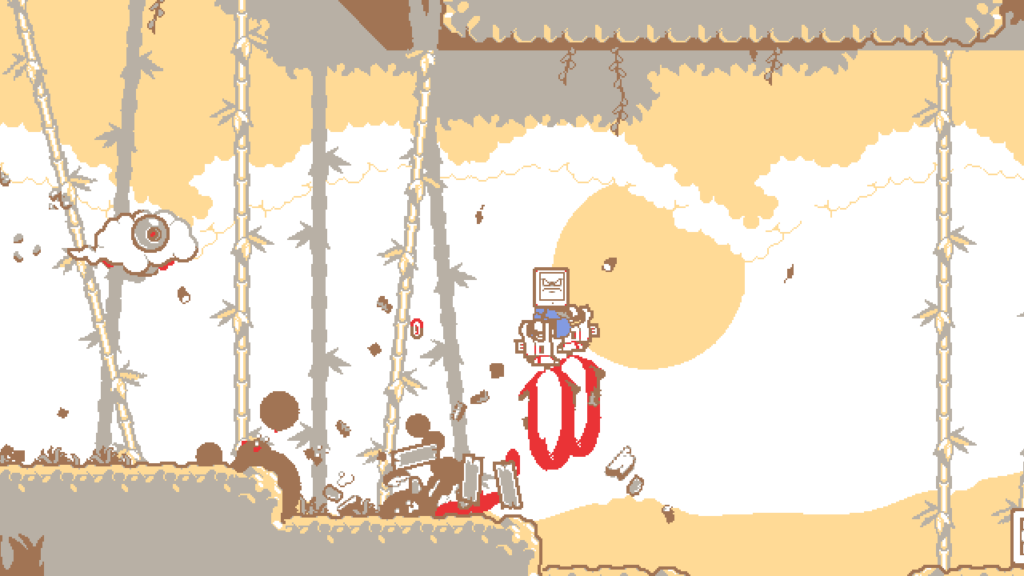
Like any traditional Metroidvania, the action follows a series of upgrades to your arsenal, starting with your trusty katana. Each new weapon grants you access to a new area and new ways to dispose of enemies. In this sense, the game isn’t breaking any new ground in terms of the genre, but it’s committed to a formula that works and plays well to its strengths, especially in platforming. Swinging through the game’s labyrinths and tunnels with the kunai is a lot of fun. Controls felt breezy as I double-jumped and slung my way around, yet tight enough where I never felt cheated by spikes or molten lava.
Kunai’s clever boss fights were just as fun, each challenging my parkour skills in unique ways The learning curve spikes a little more than halfway through the game, but not enough to detract from the overall experience. After all, tough bosses are just another piece of the Metroidvania puzzle and it would feel strange to play one that was too kind on the player.
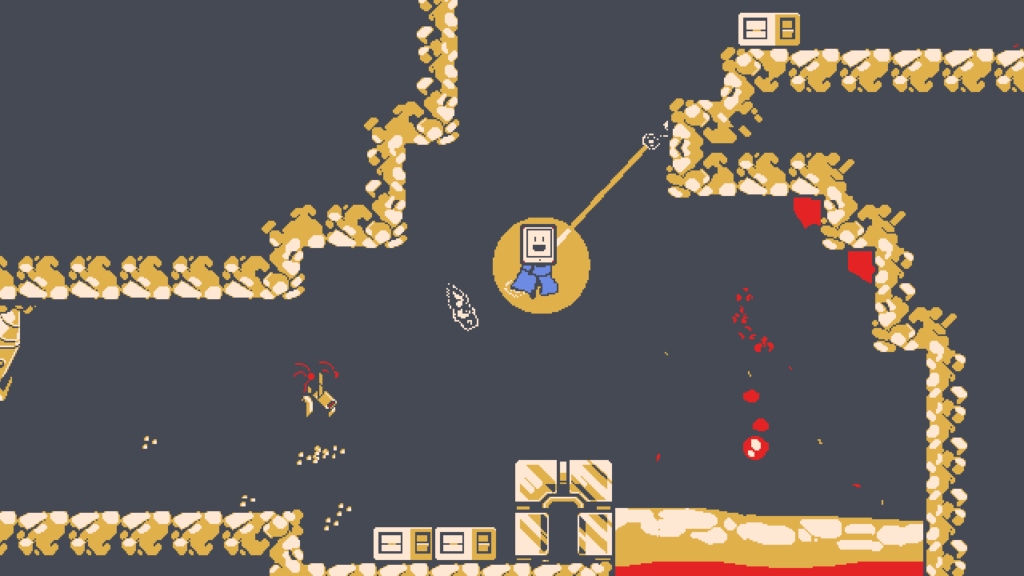
However, Kunai could’ve made some notable exceptions to make things easier. I was about 5 hours into the game and I still hadn’t found a fast travel system, which isn’t necessarily terrible game design considering how many save stations there are, but it would’ve saved me a lot of backtracking in the end. I can see how this keeps the player exploring for new areas and unopened doors, but it got repetitive when I repeatedly had to return to base for new instructions from the chief on where to go next.
Visually, Kunai emulates the pastel colors of the Gameboy color era, with notable highlights of red and blue. While the presentation is charming initially, especially in the little bits of dialogue shared with your comrades, its appeal fades over time and the different stages of Kunai begin to look the same. The 16-bit, three or four color aesthetic is largely a thing of taste because it isn’t an ugly game, just one that gets kind of old. The same goes for the music, which quickly blended into the background after all the tracks began to sound the same.
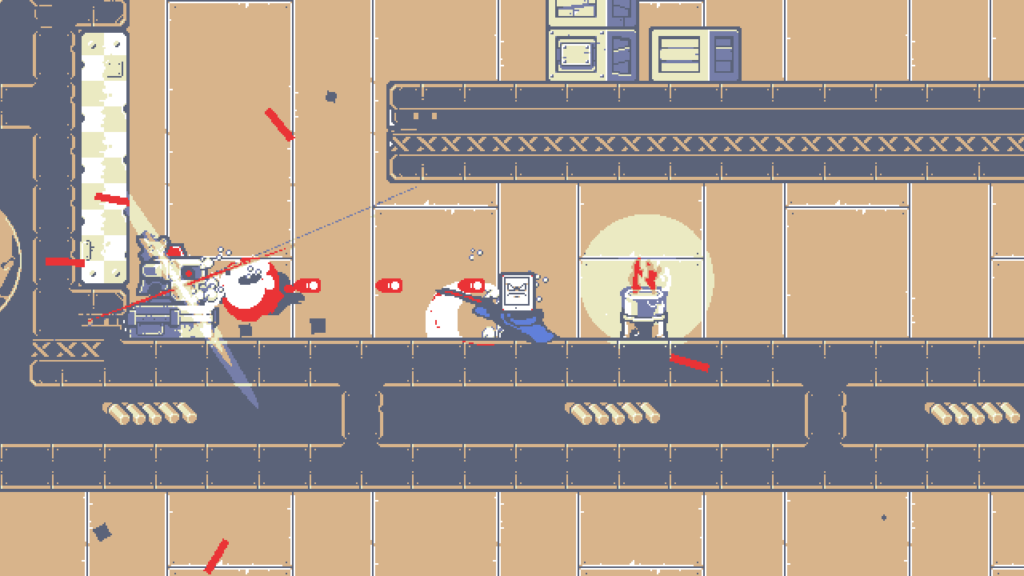
None of my minor complaints about the graphics and sound design take away from the overall experience of free exploration in Kunai’s deserted world, though. In-game currency in the form of little lego pegs is widely available so you’re able to upgrade your skillset fairly early on and there are dozens of hats you’ll discover to personalize Tabby with. These customizations, along with the quirky expressions and humor found in your interactions with NPC’s, give the game a lot of personality despite the limited color scheme.
Although it’s not without its share of challenges, Kunai manages to avoid a difficulty likely to turn off casual players. Even with an expansive map littered with dead ends and traps, it keeps the gameplay straight-forward and forgiving, encouraging the player to revisit locations once they’ve acquired what they need to scale that cliff or clear that jump. It’s a faithful tribute to the classic 16-bit exploration that’s inspired so many of the great Metroidvania titles today. It doesn’t break the mold, but it’s fun to play, and for that reason deserves some recognition among its contemporaries.






Buy Kunai
$16.99

Follow The Arcade Crew





Follow TurtleBlaze





[Review] Hello Kitty and Friends Happiness Parade – Nintendo Switch

Developed By: Dabadu Published By: Rogue Games Categories: Rhythm Release…

